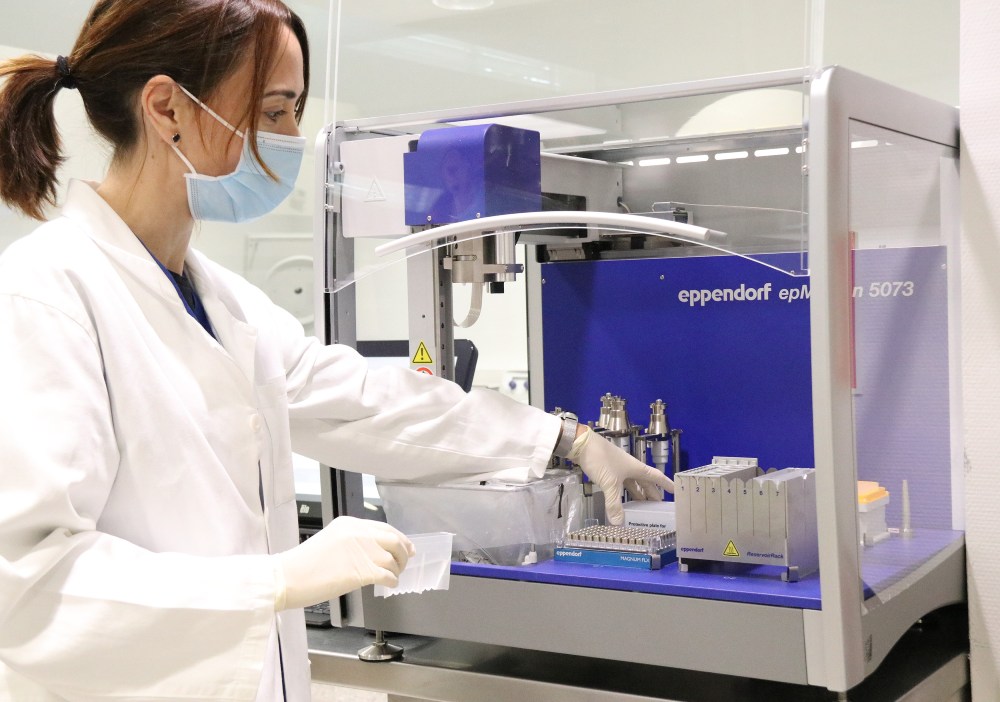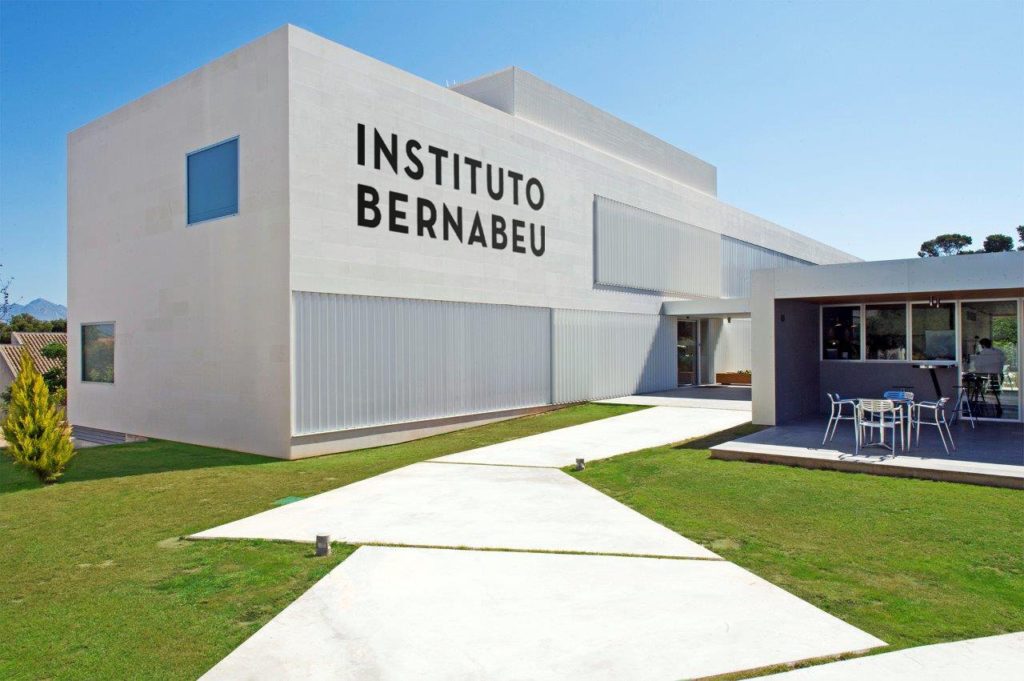Egg donation has become an essential part of the assisted reproduction process for many women who, for different reasons, do not have their own oocytes for fertilisation. In fact, more than 13,000 cycles were carried out in Spain using donor oocytes, according to the latest report by the Spanish Fertility Society (SEF in Spanish). This number places Spain at the head of Europe and demonstrates the confidence that both egg donors and recipients place in the Spanish health system. Egg donation treatments also have a high success rate of around 90%, a significantly higher percentage compared to cycles carried out with the patient’s own eggs.
On the other hand, a report by the Ministry of Health states that in recent years there has been a significant increase in the number of women choosing to donate their eggs. In demographic terms, donors tend to be young women, between 18 and 35 years of age. A significant percentage of egg donation recipients in Spain are women from all over the world, attracted by the quality and accessibility of treatments in the country because of the quality, safety, success rates and accessibility.
Legal aspects of egg donation treatment in Spain
Spain has one of the most advanced and permissive legislations in the field of assisted reproduction. Law 14/2006 on Assisted Human Reproduction Techniques regulates egg donation, establishing a clear legal framework that protects both donors and recipients.
These are some key aspects of the Spanish legislation:
- Anonymity: Egg donation in Spain is anonymous, which means that the donor will not know the identity of the recipient and vice versa.
- Health requirements: Egg donors must undergo rigorous medical and psychological checks-ups to ensure their suitability and the quality of the donated eggs.
- Embryo, egg and sperm donation: Both, couples (heterosexual and homosexual) and women who want to become single mothers by their own choice can access egg, sperm and embryo banks, which are perfectly cryopreserved with all the security measures.
The combination of favourable legislation and the high quality of specialised clinics makes Spain a perfect destination for assisted reproduction treatments, attracting patients from all over the world, which contributes to more women and couples having access to the technologies needed to conceive.
IVF Egg donation vs. double donation
In vitro fertilisation (IVF) is an assisted reproduction technique that makes it possible to achieve pregnancy in cases where natural conception is difficult or impossible. Among the options offered by IVF, there are two main variants: egg donation and double donation. Egg donation uses eggs from a healthy donor to fertilise them with the sperm of the male partner. This procedure is often used when the woman has ovulation problems, prematurely aged ovaries or genetic alterations that could be passed on to her offspring. Double donation involves the use of both eggs and sperm from anonymous donors. This technique is used in more complex situations, such as when both the woman and the man have infertility factors that make conception with their own gametes impossible, or when there is a high risk of transmitting hereditary genetic diseases.
Jaime Guerrero, Director of the Oocyte Donation and Cryobiology Programme at Instituto Bernabeu, explains:
A key aspect that differentiates the two procedures is the genetic identity of the future baby. In egg donation, the child will share 50% of its genetic material with the biological father, whereas in double donation there will be no genetic link with either parent.
How many times can eggs be donated in Spain? How many children can be born from the same donor?
According to current legislation, women who so wish may donate their eggs, in a controlled manner, every 3 or 4 menstrual cycles, but only if the medical staff deems it appropriate. However, it should be borne in mind that there is an established limit to the number of children that can result from these donations. Thus, for each woman, 6 children can be born and, once this number has been exceeded, no more donations can be made.
These donations are, of course, completely anonymous, ensuring that the recipient mother will never know the identity of her donor, and vice versa.
In egg donation Spain gets the balance between the anonymity of the donor as dictated by the regulations and the need for the recipient to have sufficient information to ensure the compatibility and success of the treatment. Once the donation has taken place, the egg donor has no right to know the fate of her eggs or the identity of the child that may result from them, and vice versa. The child born from the donation will not be able to know the identity of the biological donor, except in exceptional circumstances (such as in cases of serious health risks to the child, which require knowledge of the medical history).
Despite anonymity, certain relevant information is provided to the recipient to ensure compatibility between the donor and the mother-to-be, but always within the limits set by law. The recipient receives information on general physical characteristics and blood type. The donor’s age is also an important piece of information to estimate the risk of chromosomal alterations in the fetus during the monitoring of the pregnancy. The recipient is also provided with information on the donor’s general health status, psychological evaluation, and medical and analytical studies performed to ensure that there is no risk of transmission of genetic or infectious diseases.
Availability of egg donors in Spain
Oocyte banks in Spain play a key role in assisted reproduction, offering a solution to many couples who wish to have a child. Some specialised centres such as Instituto Bernabeu have a wide variety of donors, carefully selected and subjected to rigorous medical and psychological examinations. In addition, egg banks in Spain comply with the most demanding national and international regulations in terms of safety and quality, thus guaranteeing the traceability and confidentiality of the samples.
All the process stages, from donation to fertilisation, are subject to strict safety protocols. Eggs are vitrified and stored under optimal conditions, which allows their quality and viability to be preserved in the long term. State-of-the-art technologies are also used to identify and avoid any possible risk of disease transmission. Thanks to these measures, egg banks in Spain have become a worldwide benchmark, offering patients the peace of mind and confidence they need to start assisted reproduction treatment.
Who are egg donors in Spain?

The profile of egg donors in Spain is influenced by different socioeconomic and cultural factors. The age range allowed by Spanish legislation for egg donation is between 18 and 35 years old, with the average age being around 25. In Instituto Bernabeu, for example, 85% donors are under 30. Being so young, donors are usually single women, although some of them already have children and wish to help other women who cannot conceive.
In general, donors tend to have an intermediate level of education, although many of them are in higher education or have already completed their studies. Other egg donors are already in the labor market, working in service sectors (hotel and catering, commerce, etc.), which allow a certain flexibility in their working hours.
They usually lead a healthy lifestyle, with eating and exercise habits that allow them to maintain a good physical condition. Donors undergo a rigorous medical check-up and those who do not meet the established health requirements are excluded. Most donors do not smoke or, if they do, it is only occasionally. Similarly, alcohol consumption tends to be moderate.
Why do young women in Spain decide to be an egg donor?
In relation to what is their motivation to donate, a significant proportion of donors express altruistic reasons, stating that they do it to help other women who are unable to have children. Empathy towards those who suffer from infertility problems plays an important role in their decision. On the other hand, compensation acts as an incentive for many young women who are studying or have temporary jobs. Although it is not a payment as such, Spanish law allows for financial compensation to cover the costs of the donation process.
Donors often demonstrate a level of emotional maturity despite their youth. They undergo psychological interviews to ensure they understand the process and its implications, which also helps to screen out those who may be hesitant or psychologically unprepared. Donors, even if they are acting for financial or altruistic reasons, are aware of the importance of their gesture and how it can change the life of a couple or a person who wishes to have children.
Qualification of egg donors in Spain
Egg donation is a safe process that requires a series of stringent tests to ensure both the quality of the eggs and the health of the women donating and receiving them.
Jaime Guerrero, Director of the Oocyte Donation and Cryobiology Programme at Instituto Bernabeu, explains the process of egg donor qualification:
At Instituto Bernabeu, a series of tests are carried out to guarantee the quality of the donation and to comply with the requirements for egg donation under Spanish law. These include a psychological evaluation by a clinical psychologist, a study of the donor’s personal and family medical history, as well as a physical and gynaecological examination to ensure good general health and to exclude the transmission of gynaecological pathologies.
Chromosomal and genetic studies are also carried out to rule out the possible presence of hereditary diseases, as well as tests to rule out sexually transmitted diseases (STDs).
IVF with egg donation is a meticulous and well-structured process, consisting of several key steps:
- Donor selection: The first step is a thorough evaluation of potential donors. This process includes personal interviews, medical examinations, blood tests and genetic studies to ensure that the donor is in perfect health and free of hereditary diseases.
- Ovarian Stimulation: Once selected, the donor begins a hormonal treatment to stimulate her ovaries and produce more eggs than she would normally generate in a natural menstrual cycle. This treatment lasts approximately 10 to 12 days and requires a rigorous medical follow-up with ultrasound scans and blood tests.
- Egg retrieval: When the eggs are mature, an egg retrieval is scheduled, which is performed under sedation to avoid discomfort. This procedure, known as follicular puncture, takes about 20-30 minutes and, after a few hours of rest, the donor can return to her daily routine.
- Post-donation follow-up: After the retrieval, the donor receives medical follow-up to ensure that her recovery is optimal. This follow-up includes check-ups and, if necessary, treatment to minimise any side effects.
Compensation for egg donors in Spain
Egg donation in Spain, as stated by law, is a completely altruistic act, which is carried out with the aim of helping others. In this sense, the anonymity of both the donor and the recipient is completely guaranteed.
However, the law does allow for compensation for expenses that may be incurred by the donor, such as travel to the clinic.
In which cases is it necessary to use donated eggs in reproductive medicine?
There are different cases, but the final decision will always depend on the medical staff, but, as a general rule, it is indicated in the following cases:
- Women with premature ovarian failure: Some women experience premature ovarian failure, where the ovaries stop functioning before the age of 40. In these cases, oocyte donation is the only option to achieve pregnancy.
- Older women: As age increases, the quantity and quality of eggs decreases. For women over the age of 40, egg donation offers a greater chance of successful fertility treatment.
- Genetic diseases: When there is a high risk of transmitting genetic diseases, egg donation allows the use of healthy eggs, reducing the risk of inherited diseases.
- Cancer treatments: Women who have undergone chemotherapy or radiotherapy treatments may suffer damage to their ovaries, which affects their ability to produce viable eggs. Egg donation offers them the possibility of becoming mothers after overcoming cancer.
- Failure of previous in vitro fertilisation (IVF) cycles: In women who have undergone several unsuccessful IVF cycles due to poor egg quality, egg donation significantly increases the chances of pregnancy.
IVF with donor eggs in Spain: advantages
IVF with egg donation is an altruistic act that has a profound impact on the lives of the recipient patients. For many women, egg donation is their only chance to become mothers. This includes women with fertility problems, those who have undergone cancer treatment, or older women who no longer produce viable eggs.
The main advantage is that the donated eggs come from young women, which translates into higher gamete quality. Donors are thoroughly screened and tested, ensuring their eggs are suitable and viable for fertilisation. This rigorous screening helps to increase treatment success rates, giving couples a better chance of achieving a successful pregnancy.
Assisted reproduction treatment with donated eggs is very simple, as the patient completely avoids the ovarian stimulation procedure for the retrieval of her eggs, which can sometimes be physically and emotionally difficult. The patient only has to undergo a really simple treatment to prepare her endometrium.
Another important advantage is that treatment with donated eggs reduces the likelihood of genetic alterations being passed on to the offspring, offering a safer option.

Instituto Bernabeu is one of the most prestigious clinics in Spain in the field of assisted reproduction. Renowned for its innovation and excellence, this institution offers a safe and professional environment for both donors and recipients. It also has one of the first banks in the country, where eggs, sperm and embryos are stored and used in assisted reproduction processes for patients who need them.
Is it easier to achieve pregnancy with donor eggs?
At Instituto Bernabeu, the success rate for the first transfer in oocyte donation treatments is 65.7%, and increases to 90.1% for the second transfer. It is important to keep in mind that these are only general estimates and individual success rates may vary. You can have your success rate estimated by Instituto Bernabeu experts. Simply fill in this form to receive the estimate of your IVF chances.
Therefore, it is easier to achieve pregnancy with donated eggs compared to other techniques, as donated eggs come from young, healthy women, with a higher quantity and quality of eggs, which increases the chances of success.
Egg donation success stories
Patricia (39) and Nerea (41) got married and decided to start on the road to motherhood. Their intention was to conceive through the ROPA method, in which one of them provides the egg and the other gestate it after being fertilised with donor sperm. In this case, the donor could only be Patricia, as Nerea suffered from cancer that required the use of chemotherapy, so she did not have any eggs available for the treatment.
The team of specialists in reproductive medicine at the Instituto Bernabeu Madrid clinic assessed her case in depth. A study of Patricia’s ovarian reserve was carried out in order to obtain eggs for fertilisation and subsequent transfer. In the end, only one valid oocyte was obtained, which was fertilised and transferred to Nerea. The treatment had no effect, so the specialists recommended resorting to egg donation, thus achieving pregnancy.
On the other hand, Raúl (34) and Lorena (32) also had to resort to egg donation during their assisted reproduction treatment. After several attempts with Lorena’s eggs and Raúl’s sperm, their gynaecologist recommended egg donation. The oocyte, in this case, was fertilised with Raúl’s sperm and, finally, they managed to bring their first child into the world. Now they have begun the search for their second.
IVF with donors eggs at Instituto Bernabeu
IVF with egg donation is a safe process that requires a series of stringent tests to ensure both the quality of the eggs and the health of the women donating and receiving them.
At Instituto Bernabeu, a series of tests are carried out to guarantee the quality of the donation and to comply with the requirements for egg donation under Spanish law. These include a psychological evaluation by a clinical psychologist, a study of the donor’s personal and family medical history, as well as a physical and gynaecological examination to ensure good general health and to exclude the transmission of gynaecological pathologies.

Chromosomal and genetic studies are also carried out to rule out the possible presence of hereditary diseases, as well as tests to rule out sexually transmitted diseases (STDs).
Egg donation is a meticulous and well-structured process, consisting of several key steps:
- Donor selection: The first step is a thorough evaluation of potential donors. This process includes personal interviews, medical examinations, blood tests and genetic studies to ensure that the donor is in perfect health and free of hereditary diseases.
- Ovarian Stimulation: Once selected, the donor begins a hormonal treatment to stimulate her ovaries and produce more eggs than she would normally generate in a natural menstrual cycle. This treatment lasts approximately 10 to 12 days and requires a rigorous medical follow-up with ultrasound scans and blood tests.
- Egg retrieval: When the eggs are mature, an egg retrieval is scheduled, which is performed under sedation to avoid discomfort. This procedure, known as follicular puncture, takes about 20-30 minutes and, after a few hours of rest, the donor can return to her daily routine.
- Post-donation follow-up: After the retrieval, the donor receives medical follow-up to ensure that her recovery is optimal. This follow-up includes check-ups and, if necessary, treatment to minimise any side effects.
This article’s insights are brought to you by Jaime Guerrero, the Director of the Oocyte Donation and Cryobiology Programme at Instituto Bernabeu. Jaime Guerrero is an expert in cryobiology, specifically in oocyte and embryo cryopreservation. He graduated as a biologist from the University of Valencia in 2001 and in the summer of 2002 he joined the team at the Bernabeu Institute, where he has developed his career as an embryologist. He combines his work as an embryologist with research. He is responsible for the Oocyte Donation and Cryobiology Programme at Instituto Bernabeu and is a member of different societies related to reproductive medicine such as ESHRE, ASEBIR and SEF.
Table of Contents
- 1 Legal aspects of egg donation treatment in Spain
- 2 IVF Egg donation vs. double donation
- 3 How many times can eggs be donated in Spain? How many children can be born from the same donor?
- 4 Information about an egg donor shared with the recipient in Spain
- 5 Availability of egg donors in Spain
- 6 Who are egg donors in Spain?
- 7 Why do young women in Spain decide to be an egg donor?
- 8 Qualification of egg donors in Spain
- 9 Compensation for egg donors in Spain
- 10 In which cases is it necessary to use donated eggs in reproductive medicine?
- 11 IVF with donor eggs in Spain: advantages
- 12 Is it easier to achieve pregnancy with donor eggs?
- 13 Egg donation success stories
- 14 IVF with donors eggs at Instituto Bernabeu




